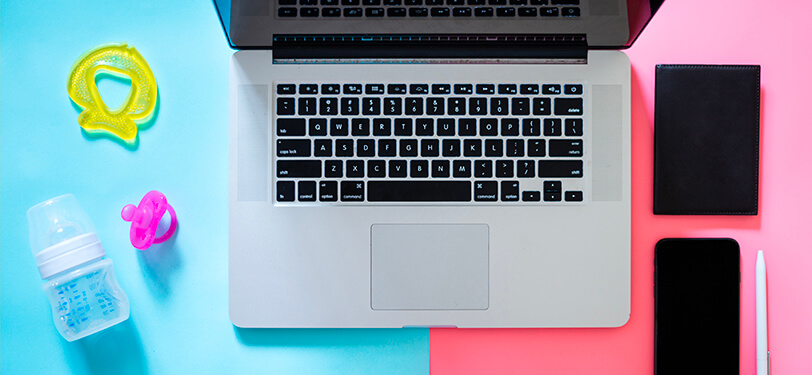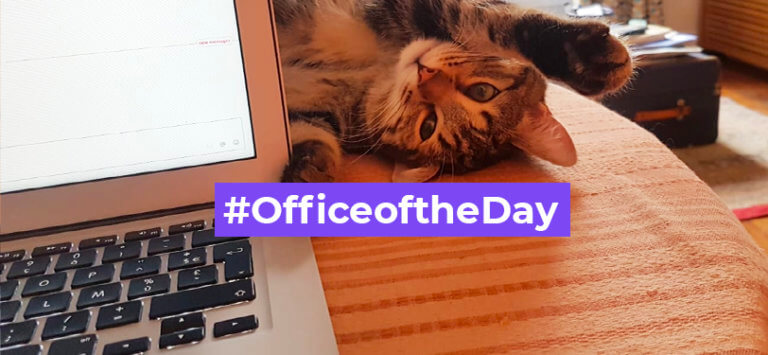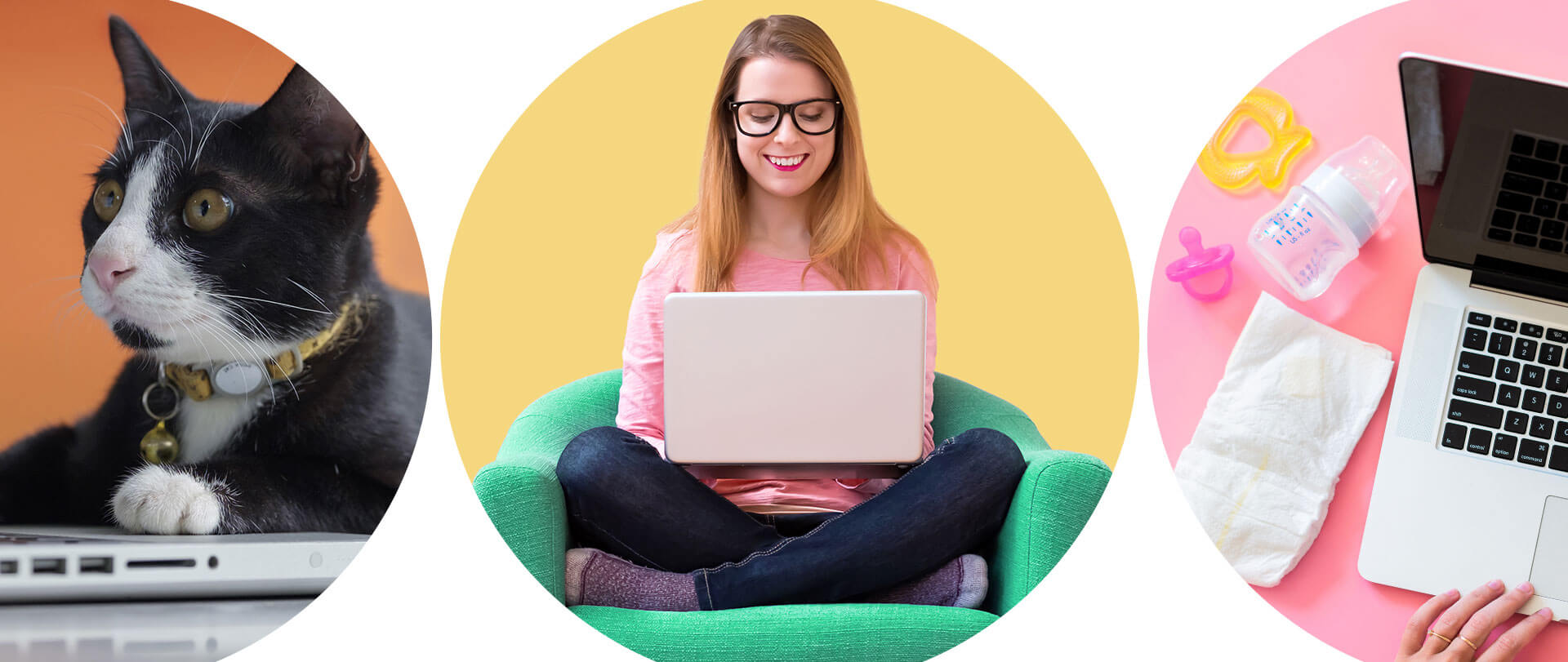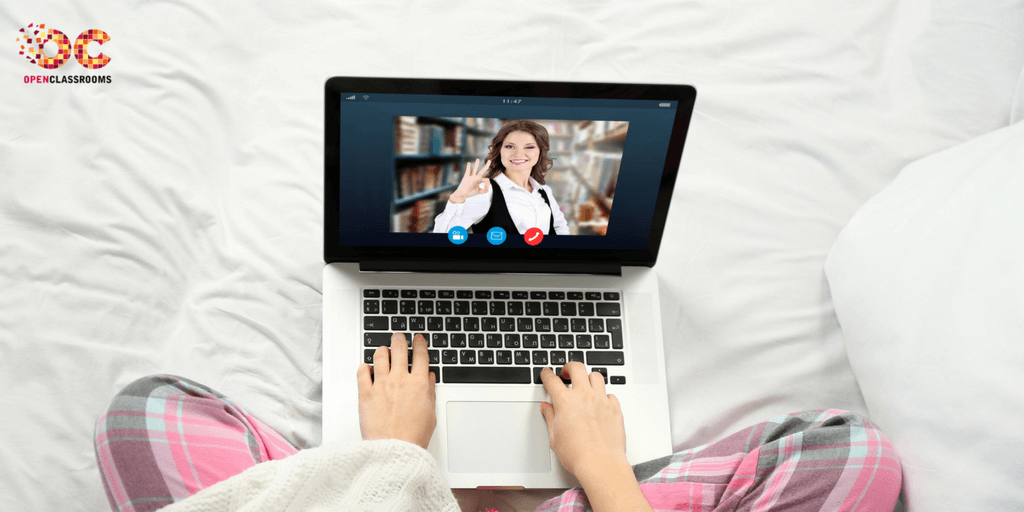Our day-to-day lives have changed dramatically due to Coronavirus in a very short period of time. It can affect how we feel, our sleep, our physical activity, the way we eat and the way we work. It has turned our family dynamics upside down and changed the way we connect with everyone in our lives.
Some of us might be struggling with strong emotions such as loneliness, anxiety about our own safety and that of our loved ones, and about our financial futures.
It is worth acknowledging the huge weight we are all collectively carrying now due to this global health crisis. And it is important that we take positive steps, to stay mentally and physically strong despite these challenges.
Your well-being starts with your self-care and maintenance – the things you do when you are not working. Here are what we hope are helpful tips for staying mentally strong while working from home during COVID-19.
Set your boundaries
One of the most common struggles when working from home is having firm clock-in and clock-out times. You may be noticing that you are starting work earlier than usual each morning and working just a bit later in the evenings. Or maybe you are feeling like you have to be available online 24/7 for your colleagues.
Step back and remember your working schedule during regular times. If you normally don’t get to the office until 9am, don’t sit down at your home workspace until 9am. If you usually leave the office at 6:30pm, that’s the time to shut off for the night when working from home.
Of course, not everyone has this same schedule, but hopefully you are getting the message that you should not be working more hours at home than when you are working from the office. And it is good practice to respect the working-hours boundaries of your colleagues, as well.
Build your routines
Working from home allows you to have more autonomy over your time. But it’s willpower that is going to help you use that time to your benefit. Consider designating certain moments in the day for routines that improve your mental and physical state, creating a sense of normalcy and accomplishment as they punctuate your days.
Mornings before the work day starts, breaks throughout the day and the evenings are ripe for fitting in your routines. We hope the following tips will give you ideas to choose from to fill your routines.
Move your body
If you are sitting at your computer all day its wise to also get in some physical activity. Try to stick to your regular routine in terms of number and duration of workouts per week. If you usually go to the gym or take a class, adapt your workouts to the home. There are a number of online resources that are completely free.
If you don’t usually do much physical activity, this is a really important time to start. This can simply mean engaging in light stretching a couple times a day. Connecting with your own physicality will improve your sleep, release those feel-good endorphins, and enhance your general wellbeing.
On Youtube, check out Fitness Blender, Yoga with Adriene and The Body Coach TV. You could also consider workout apps such as Nike Training Club or Freeletics.
Slow your mind
Some of the most toxic mental states are fear and rumination. And in this time of uncertainty, it is only natural that our minds drift more frequently into these spaces.
So while we want to keep our bodies active, we need to learn to slow down and redirect our minds. There are a number of apps such as Headspace and Calm that are truly game-changing, helping us to build our home meditation practices. The podcast, Meditative Story uses story-telling and mindfulness meditation to get you relaxed, too.
Also consider coherent breathing techniques. Stopping throughout your day to just simply take 5 deep breaths can make an enormous impact on your state of mind. If you need some guidance, try this post from mindful.org.
Share what’s on your mind
It is well-known that sharing your feelings is the most effective way to process them. It is therefore paramount that we stay connected to family and friends via digital tools and at home.
Share with them what’s on your mind; your worries, and your frustrations. This simple act will provide relief.
Additionally, you may choose to have a remote session or two with a therapist or simply take some time to write down your thoughts in a journal. Giving those fears and worries an outlet is the goal.
Find your flow
“Flow” or being “in the zone” is a mental state in which we are completely enthralled and focused on an enjoyable activity. When in flow, we don’t see time passing. Finding regular flow is a key component to living a happy life.
Think about when you get in the zone. Can you do those activities at home?
If cooking, reading a good book, painting or fixing things around the house are your source flow – go for it! If you normally find flow through group sports or other activities you just can’t do in isolation – consider trying out something different.
Need ideas? Puzzles, board games, or even taking an online course to learn something new could get you there.
Be your gatekeeper
While it is important to keep up-to-date with the developing situation, it is even more important to temper your consumption of the news and coronavirus-related media.
Every input of information that feeds your fears and imagination threatens your wellbeing. Your body has a physical reaction to news – your heart rate will go up and your breathing pattern will change. All the hard work you’ve been doing to stay centered can be undone after a prolonged binge of the news.
You are the gatekeeper to your own wellbeing. Decide on which one or two news outlets will be your source of news, and set the intention to check in only once a day. Written news from reputable sources is preferable to TV news which includes visuals and music that has a bigger impact on us.
Improve your sleep and nutrition
With no social or work commitments to attend, and with restaurants off limits, there is no better time than now to improve your sleeping habits and eat more mindfully.
For sleep, try to go to bed at the same time every night and wake up at the same time every morning. Sleep specialists also say, the optimal amount of sleep is from 7 to 9 hours. More sleep than that can actually make you feel less energetic. For more sleep tips, see this SleepFoundation.org article.
For nutrition, consider the basics:
- preparing meals with whole foods – avoiding anything too processed
- staying away from sweets and sugary drinks
- drinking 8 cups of water a day
Following these basic sleep and nutrition guidelines will set you up for feeling your best.
Prioritize your personal hygiene
Just because you are home, don’t fall into the trap of cutting back on your personal hygiene. And let’s be honest, this is easy to let slip when you are confined to your home for weeks at a time. Be sure to:
- shower daily.
- tend to your nails.
- perform self-hygiene that you may not always have time to do.
- put on a fresh set of clothes each day
Staying up on your personal hygiene sends a strong subliminal message to your brain that you are well and healthy
We hope this series of tips to keep yourself feeling mentally and physically strong while working from home during COVID-19 will prove helpful. Tell us in the comments if you’ll be adopting any of these strategies, yourself.









